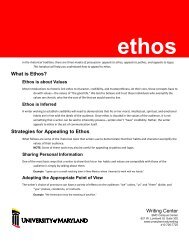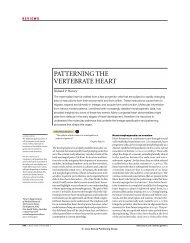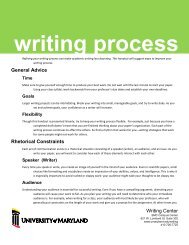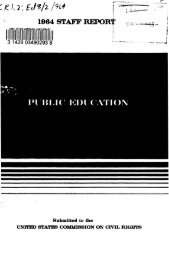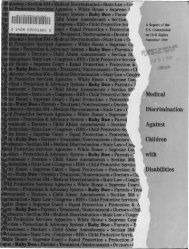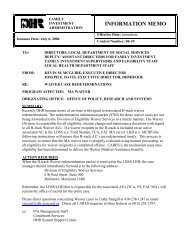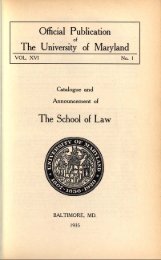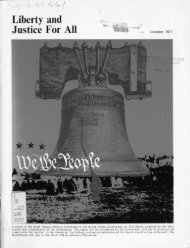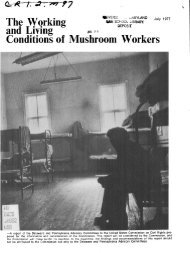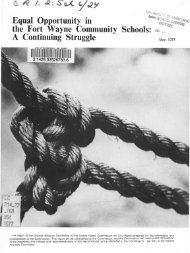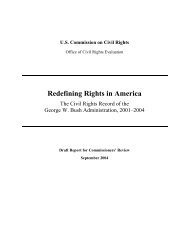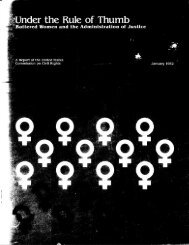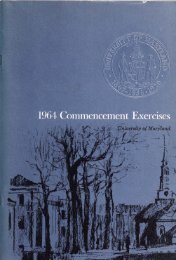Field Manual for 2013-2014 - University of Maryland School of ...
Field Manual for 2013-2014 - University of Maryland School of ...
Field Manual for 2013-2014 - University of Maryland School of ...
Create successful ePaper yourself
Turn your PDF publications into a flip-book with our unique Google optimized e-Paper software.
knowledgeable about equalizing that power imbalance.<br />
3. Gain knowledge <strong>of</strong> the impact <strong>of</strong> public policy, decisions and management implications in an area <strong>of</strong><br />
practice such as aging, child welfare, health, mental health, and so <strong>for</strong>th.<br />
4. Develop an understanding <strong>of</strong> how communities develop and function, including:<br />
• pertinent community history<br />
• demographic data<br />
• values<br />
• key institutions<br />
• strengths and assets<br />
• actual and potential leaders<br />
• key sub-groups<br />
• critical challenges.<br />
5. Develop knowledge <strong>of</strong> an agency, its history, services or programs, the community context, and<br />
interorganizational relationships necessary to promote community building.<br />
6. Develop an understanding <strong>of</strong> <strong>for</strong>mal organizations in these areas:<br />
• organizational vision, mission, mandates and goals<br />
• organizational structure<br />
• <strong>for</strong>mal and in<strong>for</strong>mal systems<br />
• external relationships including coalitions, partnerships, collaborations.<br />
7. Develop knowledge <strong>of</strong> management functions in <strong>for</strong>mal organizations in these areas:<br />
• organizing and staffing<br />
• planning and decision making<br />
• fiscal control and evaluation<br />
• leadership, motivation, and communication<br />
• organizational change and development.<br />
8. Increase understanding <strong>of</strong> human behavior in <strong>for</strong>mal organizations at these levels:<br />
• individuals<br />
• teams and small groups<br />
• sub-cultures<br />
• intra- and inter-organizational cooperation.<br />
9. Develop knowledge <strong>of</strong> in<strong>for</strong>mation technologies in management and community organizations, and<br />
demonstrate the ability to collect and process relevant in<strong>for</strong>mation.<br />
10. Deepen an understanding <strong>of</strong> the nature and range <strong>of</strong> pr<strong>of</strong>essional roles and relationships:<br />
• recognize the importance <strong>of</strong> self-awareness<br />
• identify the impact <strong>of</strong> culture, including gender, race, ethnicity, age, religion, sexual orientation<br />
and so <strong>for</strong>th on self and others<br />
• identify the variety <strong>of</strong> pr<strong>of</strong>essional roles such as – facilitator, leader, broker, organizer, negotiator,<br />
educator and manager.<br />
B. Skill Objectives<br />
1. Identify, define and help resolve community and organizational issues, problems, and conditions; and<br />
identify, define and document community and organizational assets and strengths.<br />
2. Demonstrate the ability to develop and implement a problem-solving sequence with an organization<br />
or community group:<br />
• relationship building<br />
• setting goals and objectives<br />
• leadership development<br />
• selection <strong>of</strong> strategies and tactics<br />
• action steps<br />
• implementation plan (budget, personnel, space/physical requirements)<br />
68



